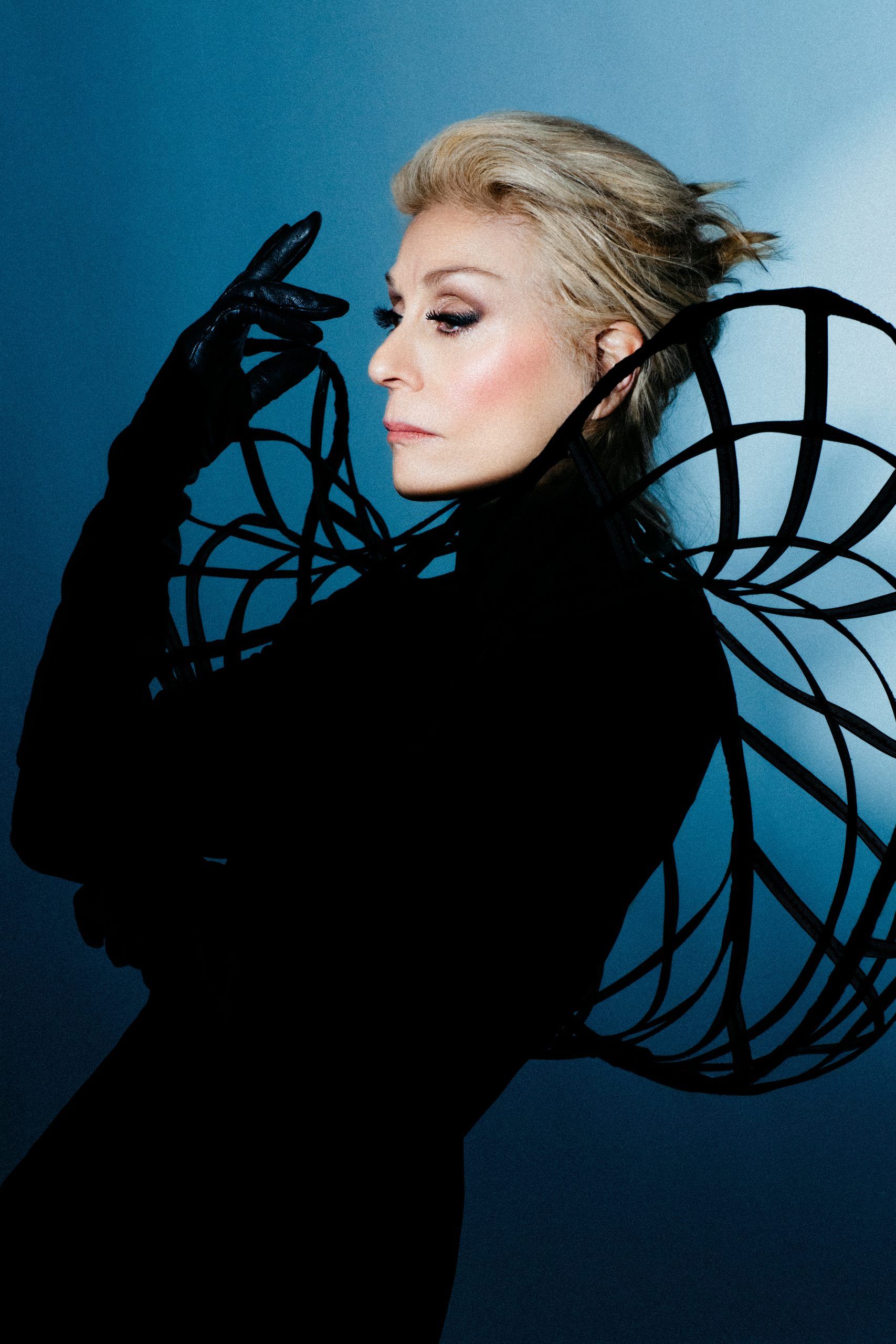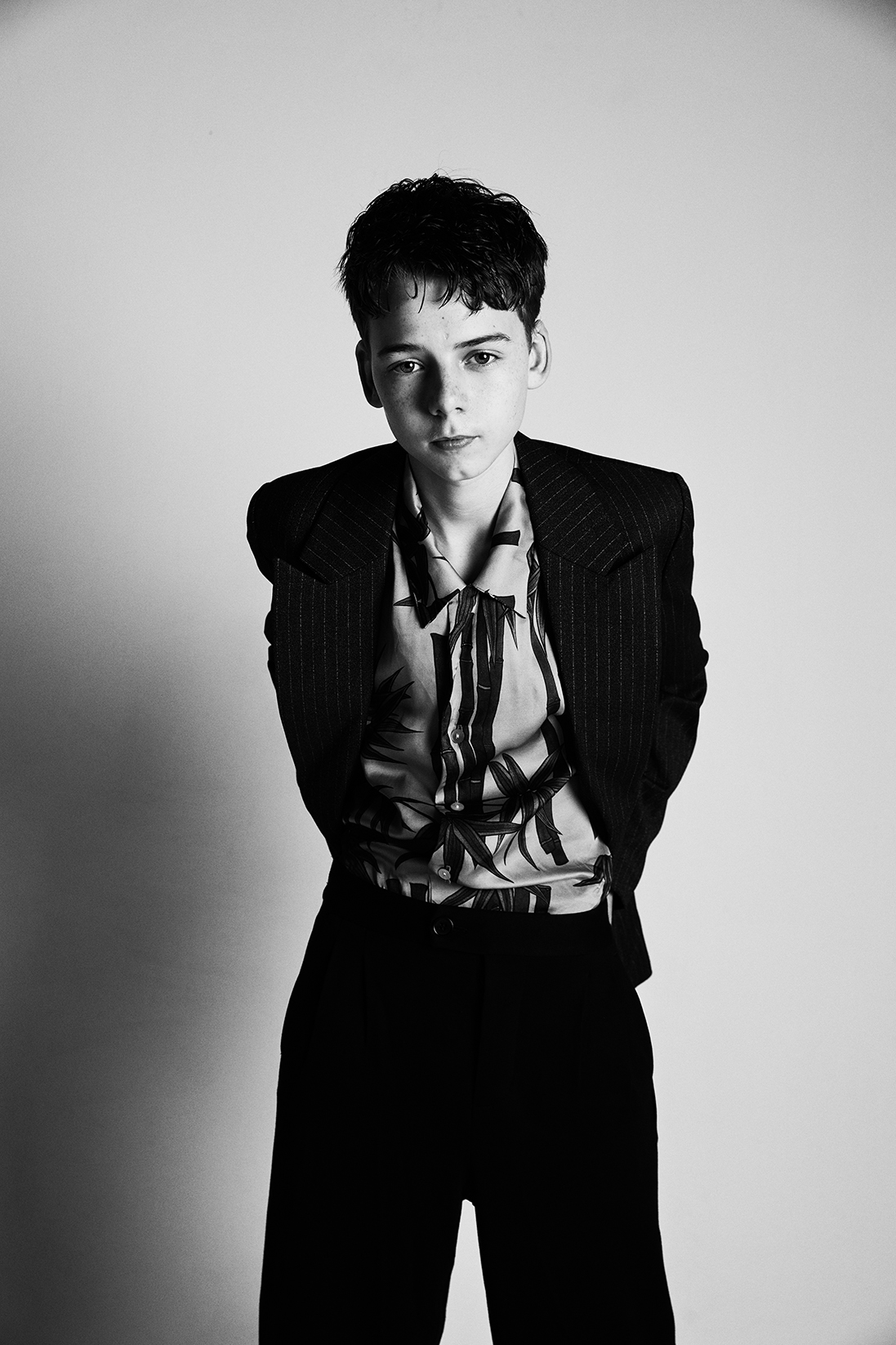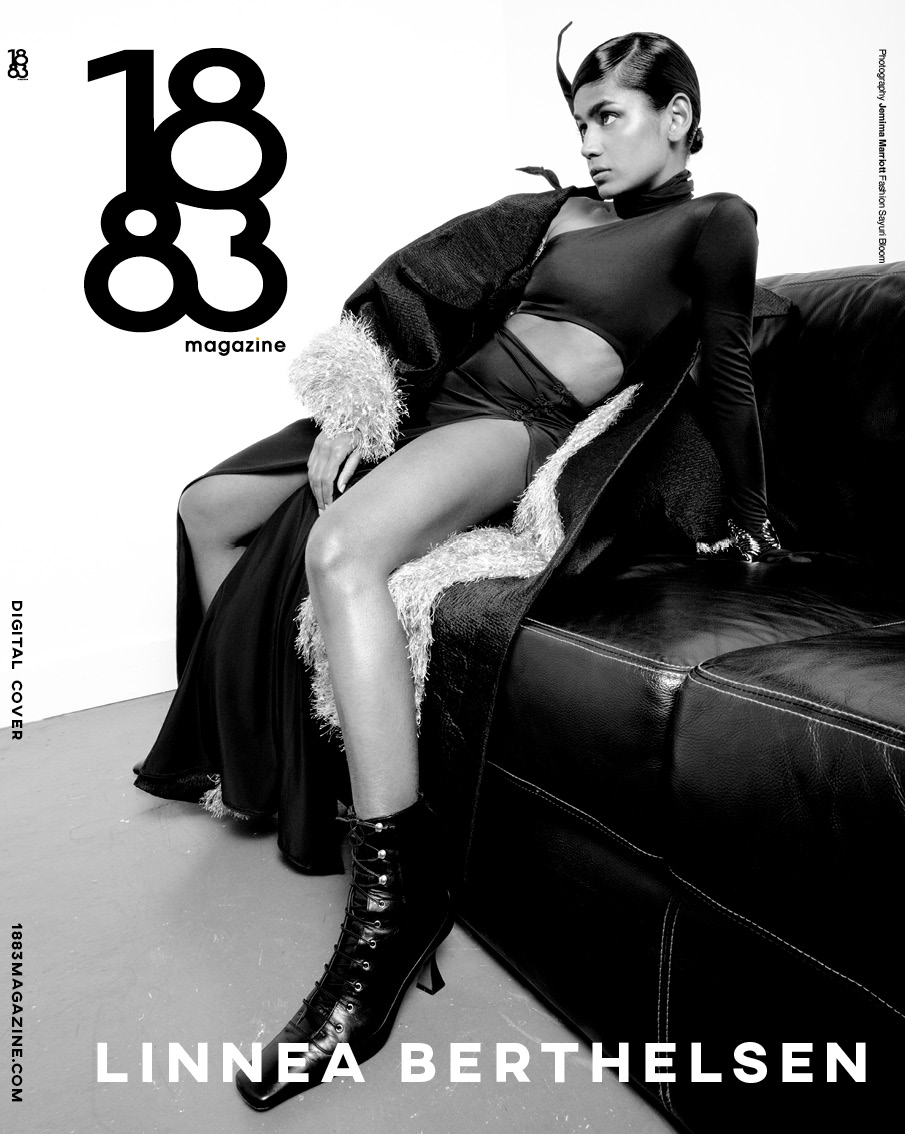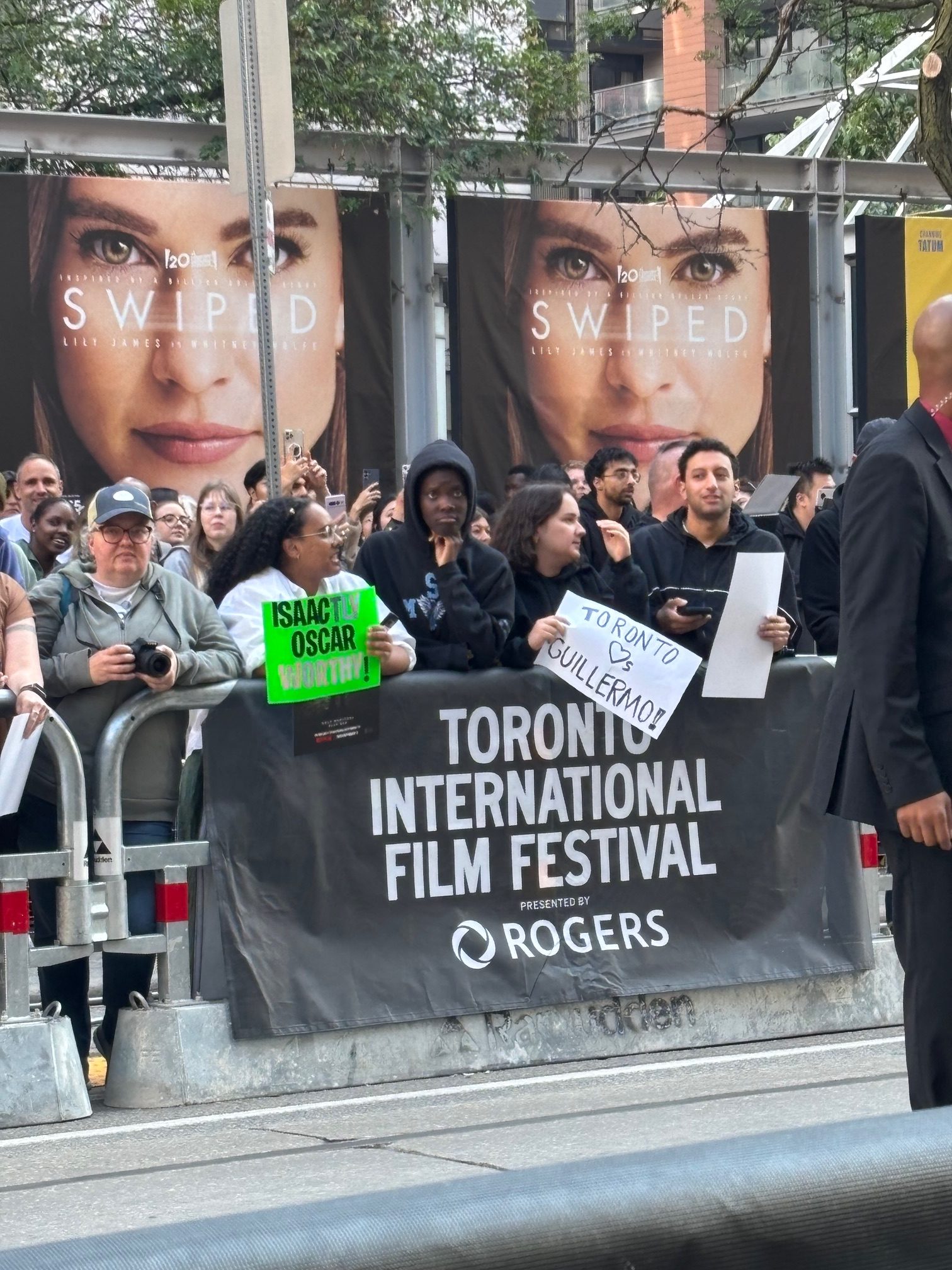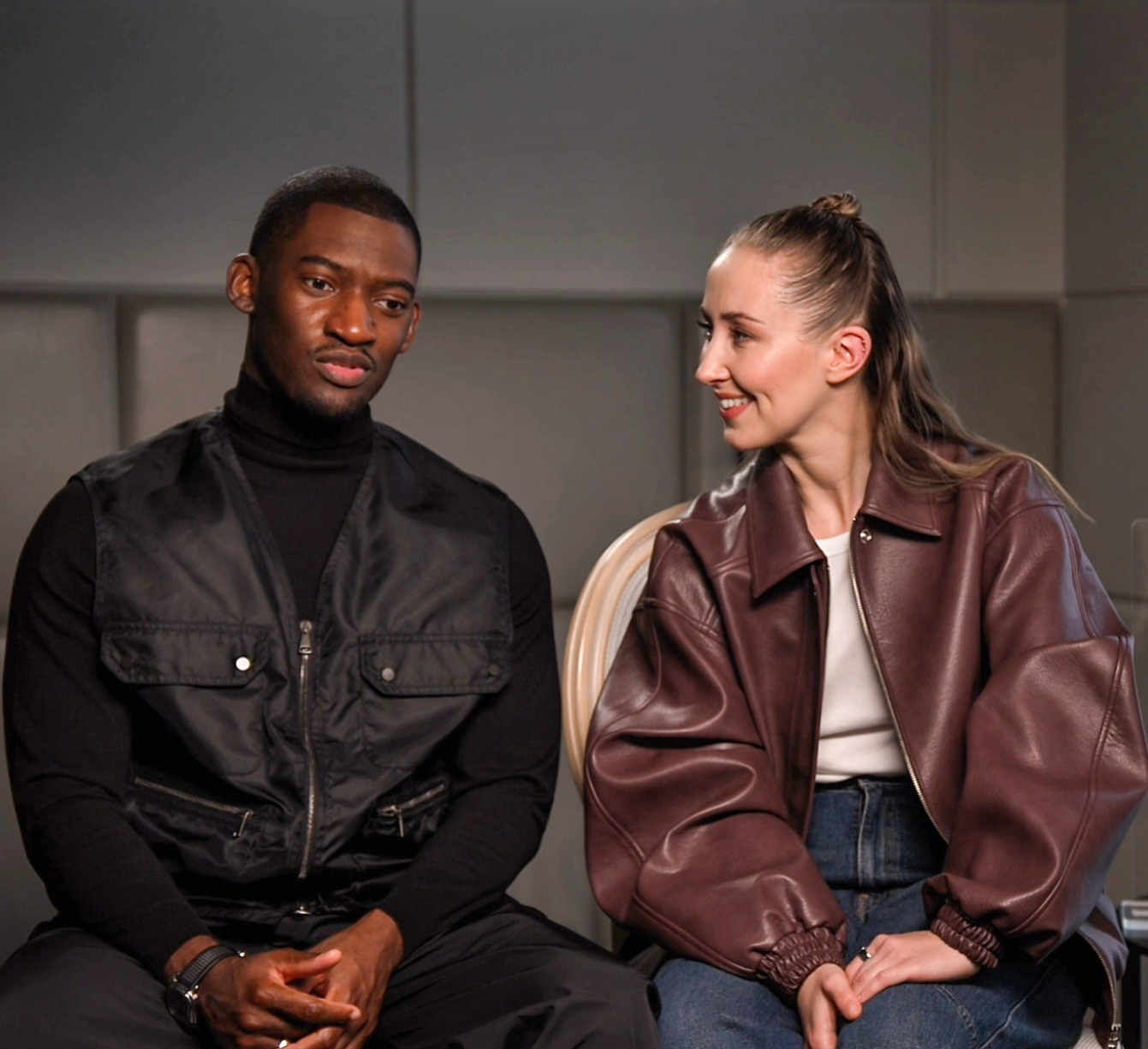Judith Light has done it all. From daytime television, theatre, film, and everything in between, she is the epitome of an icon. With her breakout role as Karen Wolek on One Life to Live, Light quickly became a household name, racking up accolades including 2 day-time Emmys for Outstanding Lead Actress in a Drama Series. However, at the very height of her fame, California was calling. She knew this was as good as it would get if she stayed in New York City. Tempted to stay in her bubble of comfort, alongside a whole plethora of excuses (including not being able to drive, a thought that makes her laugh during our conversation), Light credits her husband, Robert Desiderio, for convincing her to make the move out to the West Coast. With stints on St. Elsewhere, Family Ties, and Remington Steele to name a few, it was the script for Who’s the Boss that resonated with her. Completely different than anything that was on TV at the time, and bravely switching gender roles (quite progressive for the 1980s), Light found herself in the shoes of Angela Bower.
After eight seasons on Who’s the Boss? Light’s career continued to blossom. Her husband was right. With countless award nominations, and most recently a Primetime Emmy win for Outstanding Guest Actress in a Comedy Series for her role in Poker Face, she can explore the many facets of the human condition that fascinate her, something that she is constantly pursuing as an actor. Continuously growing, her latest role as Lynn in Apple TV’s Before and Disney +’s Out of My Mind both push her into new realms of the craft she loves so much. In the psychological thriller Before, Light acts opposite Billy Crystal, who plays child psychiatrist Eli who becomes deeply affected by the death of Lynn, played by Light herself. In Out of My Mind, Light portrays Mrs. V in the coming-of-age film about Melody Brooks, a nonverbal wheelchair user who has cerebral palsy and is navigating sixth grade. The dichotomy between the two projects speaks to Light’s talent as an actress — completely engulfing herself in the stories and characters she plays.
In conversation with 1883 Magazine’s Dana Reboe, the iconic Judith Light discusses Before, what attracts her to specific characters, and more.
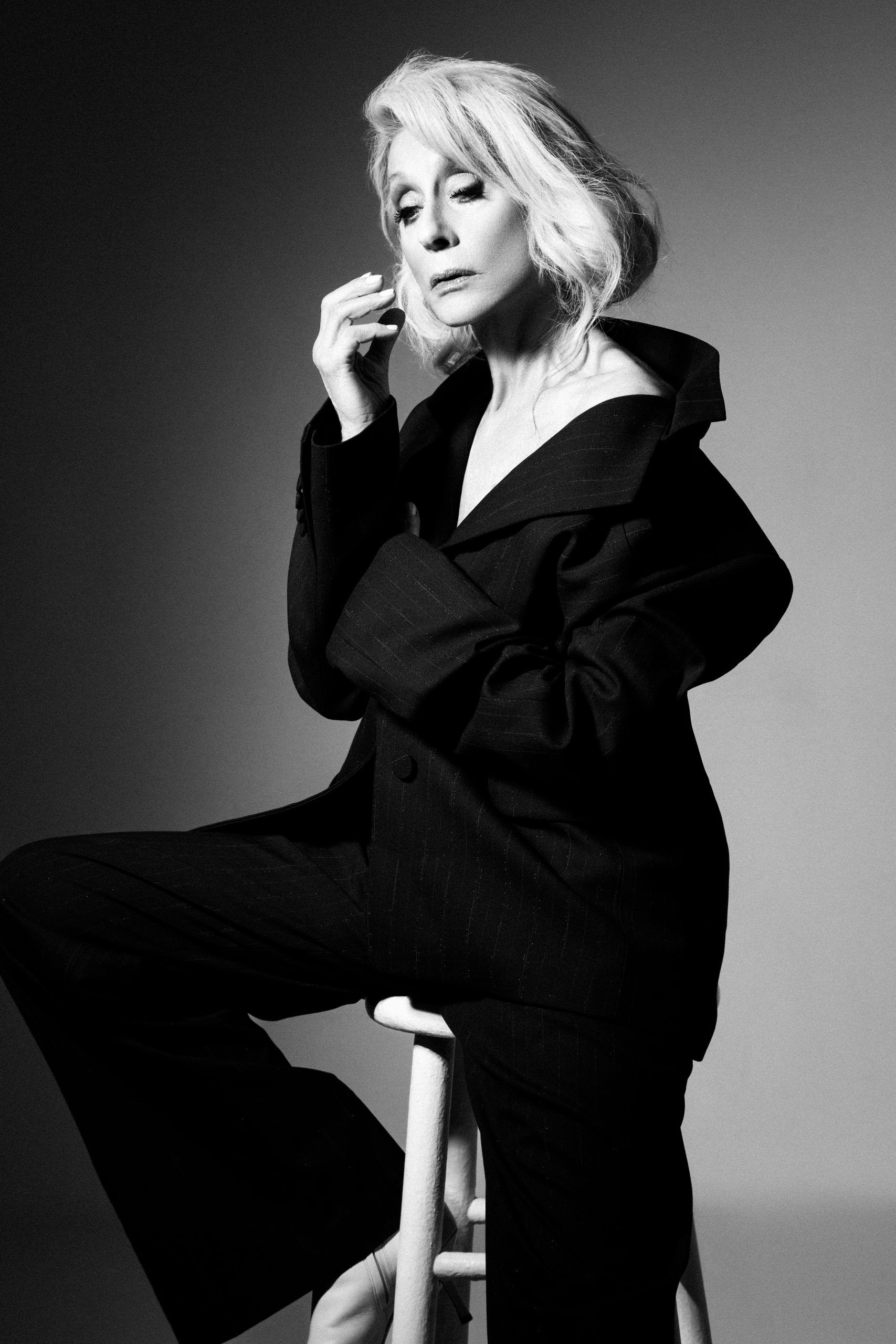
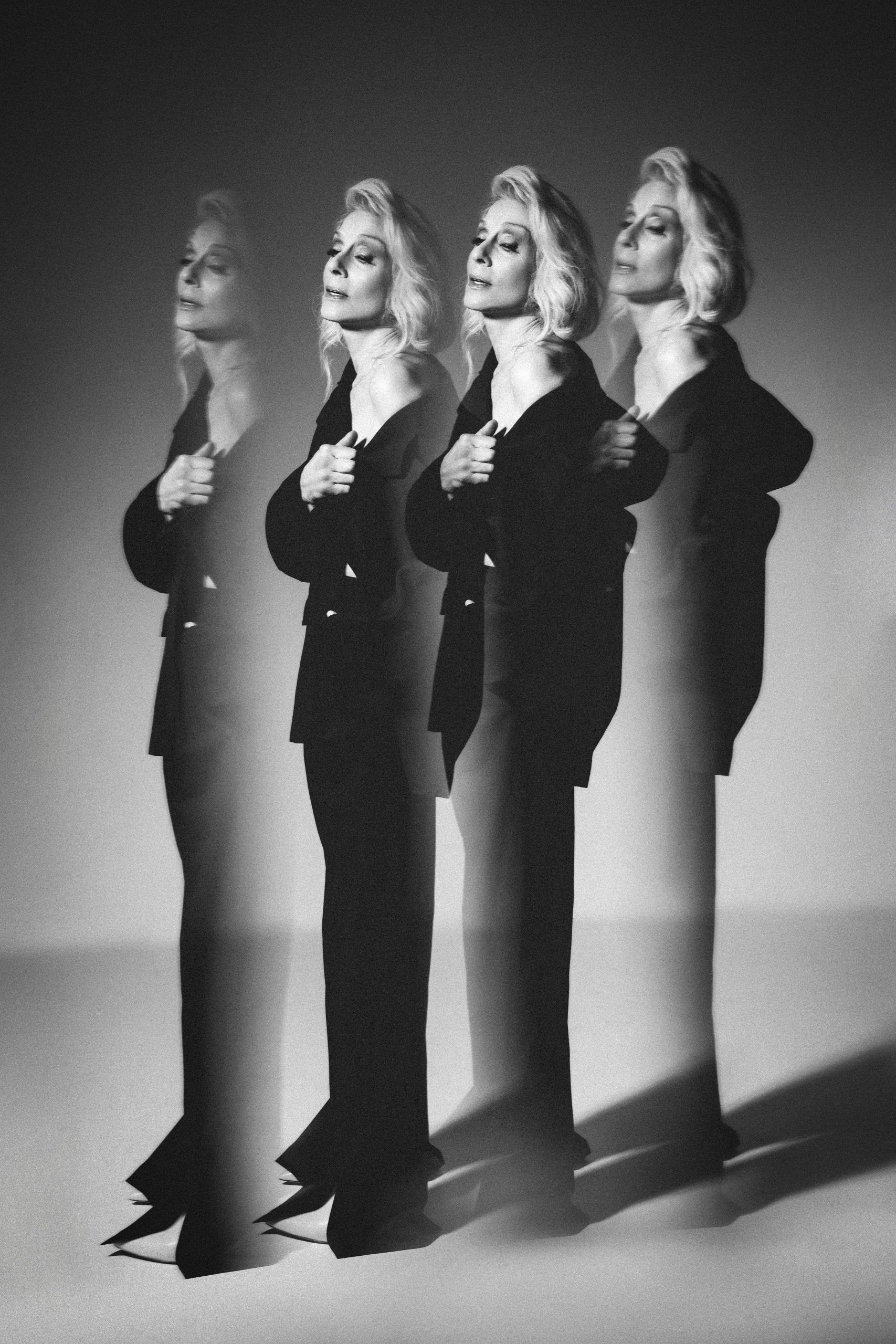
To start, your career spans decades from theatre, film, and television. What is it about the art form you love so much, and what keeps you interested in exploring different facets of character?
You said it in the last part of your question. I’m always interested in character and human beings. I’m curious about who they are and how they behave. I’m curious about my own behavior, my own psychological understanding of things that I do in myself. The art form is so expansive. With television, film, and theatre, you have all these opportunities to work on and create all these interesting characters. That’s the thing that I find the most fascinating about it for myself and for the audience. The way I choose something is very important to me because I want to show the audience the dynamics of someone’s character and who they are. That’s what I find artistically compelling and of great interest and curiosity to myself.
That leads me to my next question. When you look at the characters you’ve played, from Angela Bauer to Claire Mead and Shelley Pfefferman and now Lynn, what is a common thread of connection you find in these characters, what are you looking for in a script before you decide to take on a role?
Mostly, I would say that these characters are not just powerful, not just formidable, not just powerful women. It’s not that. It’s that they’re multidimensional. Their dynamics and the way they relate in the world are all very different, but also very complicated, challenging, and challenged. There’s an evolution to them. They are not stagnant. They are always in motion. They are expansive. They are moving. There is an aliveness about every single one of them that I find incredibly compelling.
How do I choose a script? How do I choose a character? One of the things I’ve always talked about is that I believe that what we do in this particular art form — theatre, film — we are doing a service for our audience. [It is] a service to ourselves if we’re willing to look at ourselves and bring forward the things that will be useful and applicable for the character. I think if it’s something that I can delve into that will be exciting, entertaining, and of great value to the audience, that’s often how I choose. I ask myself: is it something that’s going to be valuable to me? How am I going to grow from it? In what way? How will it expand my knowledge of myself? And then, how can I talk to people like you in the press about it? That’s how this works. It’s really important that we do this because you’re my voice out in the world. I get to talk about something and these particular characters in this particular way. It has some value, I think.
Speaking of another one of your roles, I’d be remiss if I didn’t bring up Anne and The Menu, my mum really wanted me to ask you about it when I told her I’d be interviewing you today.
Tell me, what was her thought about it? What was her response?
She enjoyed it. Well, it was mostly a lot of shock and awe [laughter]. She found the character of Anne to be quite passive, but I didn’t read it as passivity. I found her to be much more nuanced. Anne gave Margot that little nod, in the end, almost like she was telling her to be free. I found her to be fierce in that moment.
I agree with both of you. There was a passivity to Anne and, on this particular night at this dinner, what ends up happening is she starts to come into her own leaving her passivity behind and becoming proactive in a way that she has never been before in her life, which I find incredibly compelling. She looks to be a very passive person and has been for most of her marriage. And it is, on this night, in this confrontation, she is giving this permission to the person with whom her husband has had an interlude, and she is clear about how much this girl reminds her of her daughter. She is saying to her daughter, go be free.
And that was ad-lib. The director, Mark Mylod, said to keep it in. I wasn’t sure whether they were going to want it or not. It was so spontaneous. In the moment, it was like she was saying, “It’s okay, you have to go. You have a life, go and live for those of us who may not live.” It felt like an act of defiance in a way and an act of strength in a way.
“If this is my last night on Earth, let me go out my way,” is how I read it.
Let me go out being truthful and with clarity and that will somehow heal my soul and my life. You know, there is a lot in that film that has not been unpacked yet. Some people found it very challenging and very difficult. There’s a lot of space left for the actors to fill things in, just like we’re having this dialogue now.
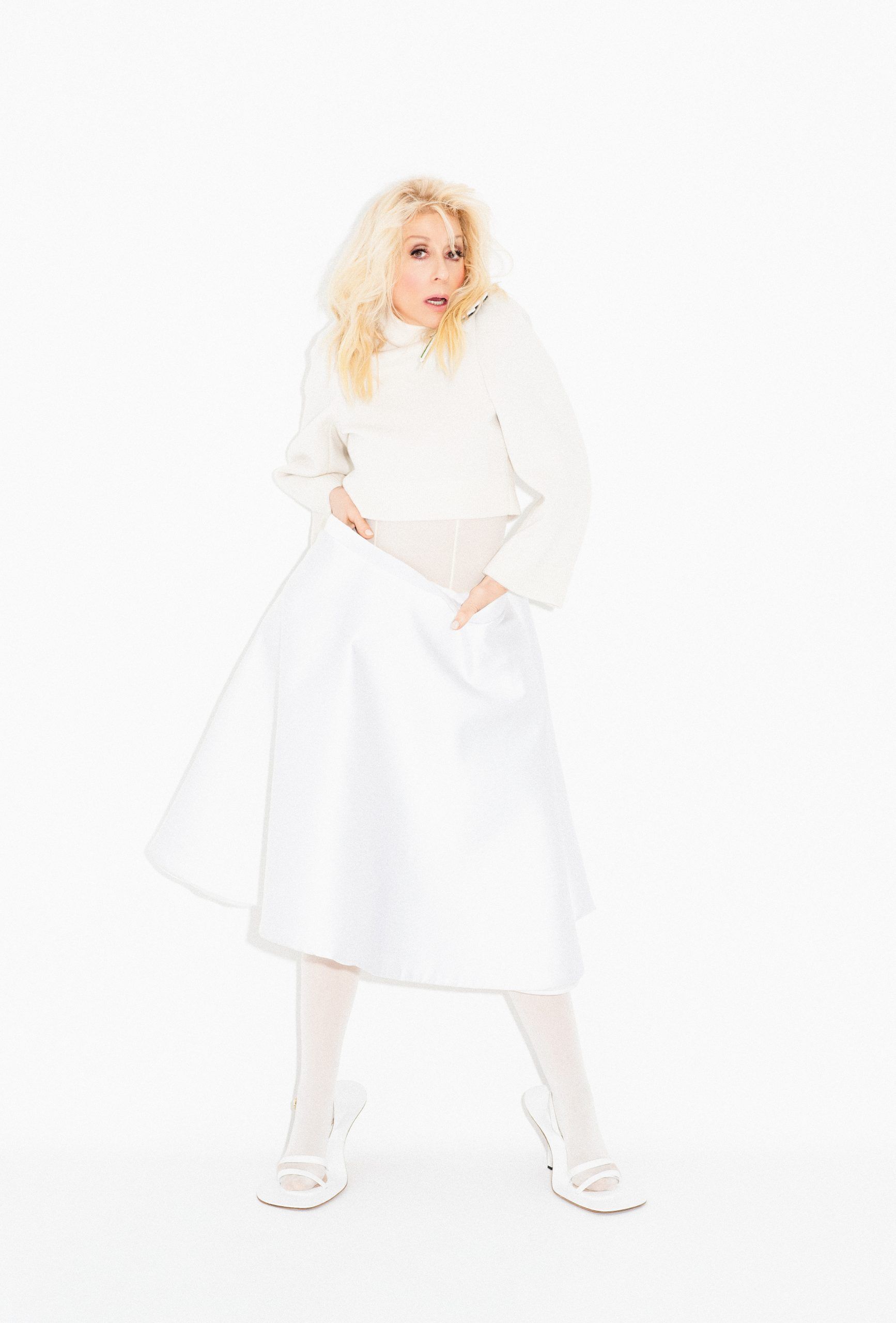
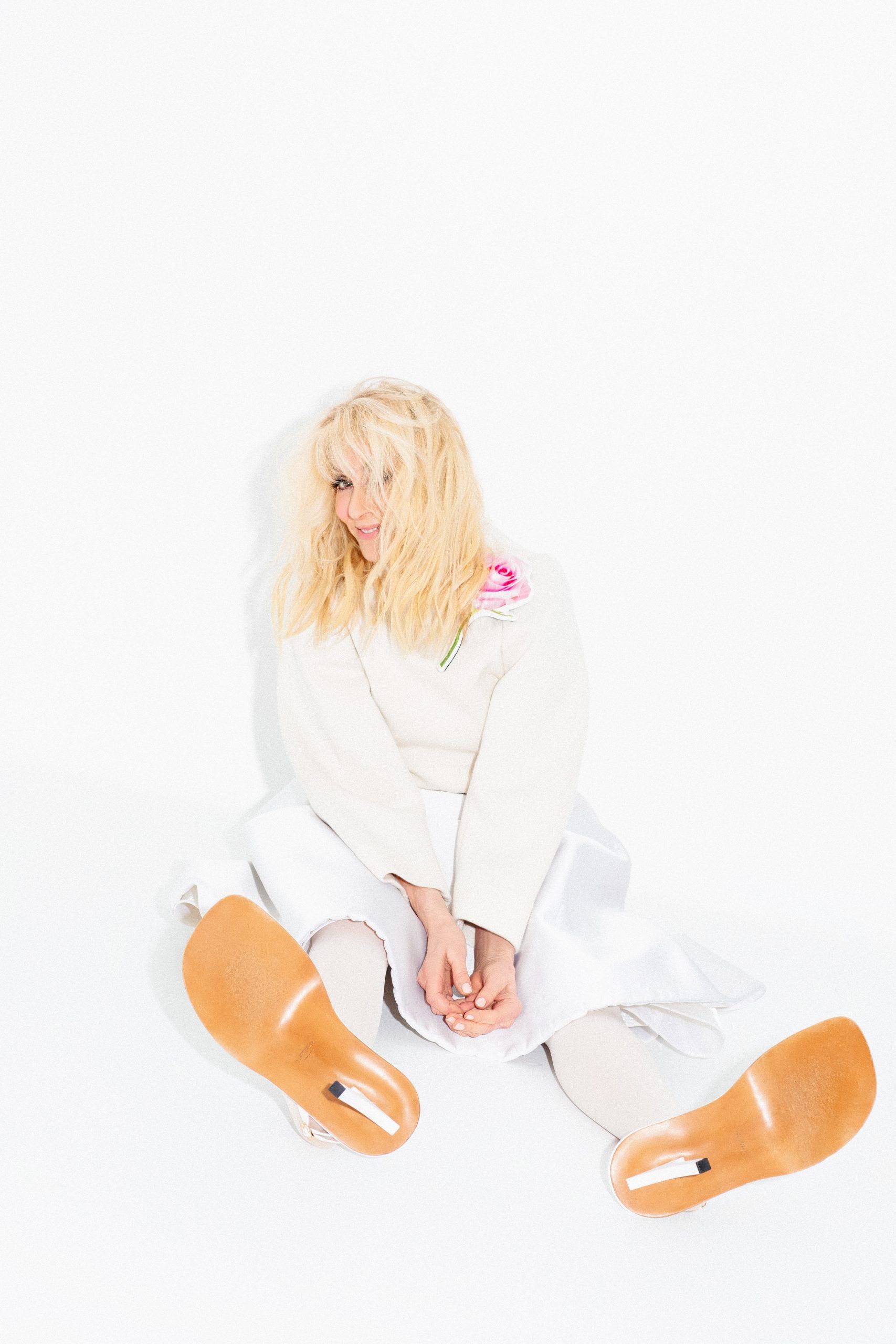
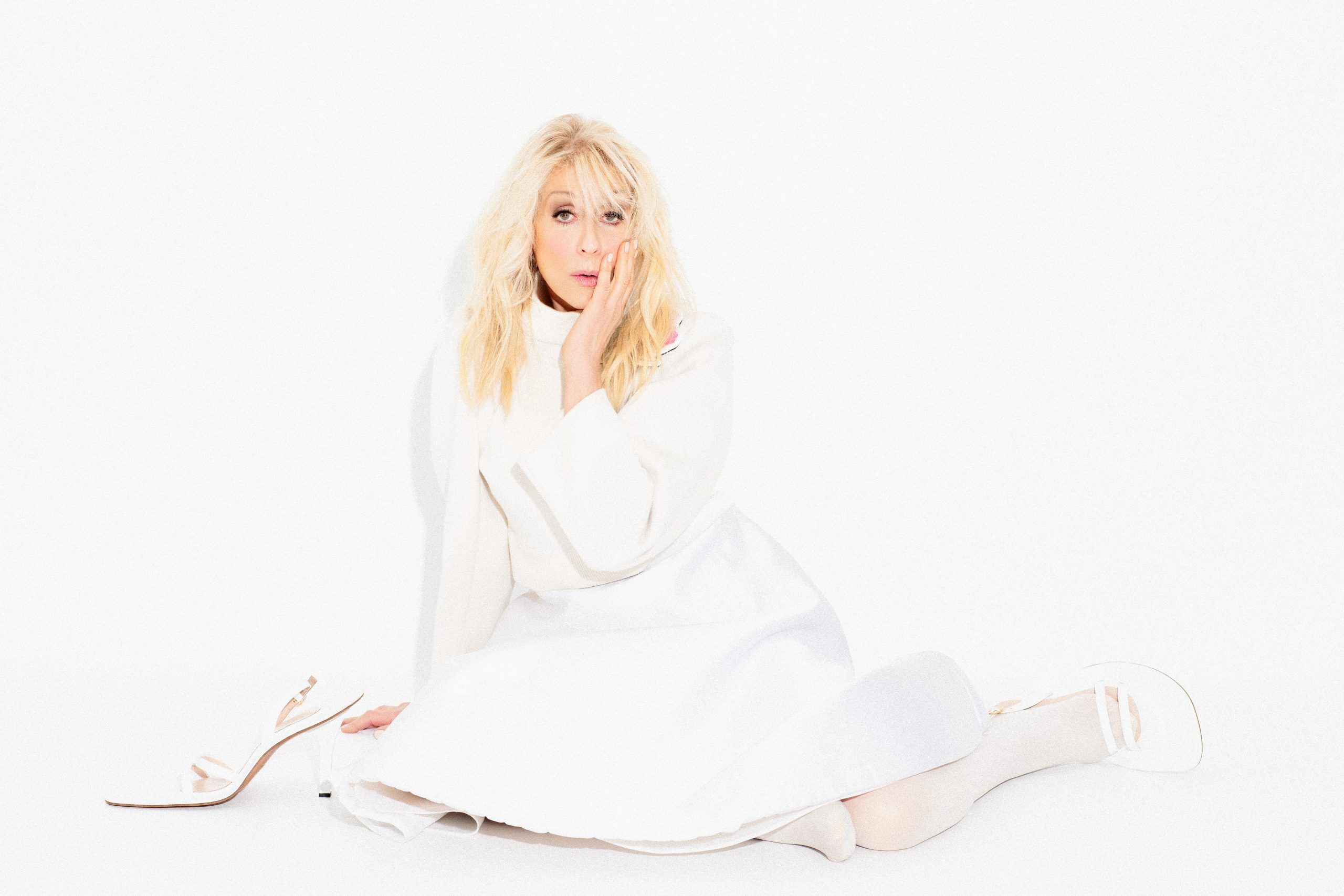
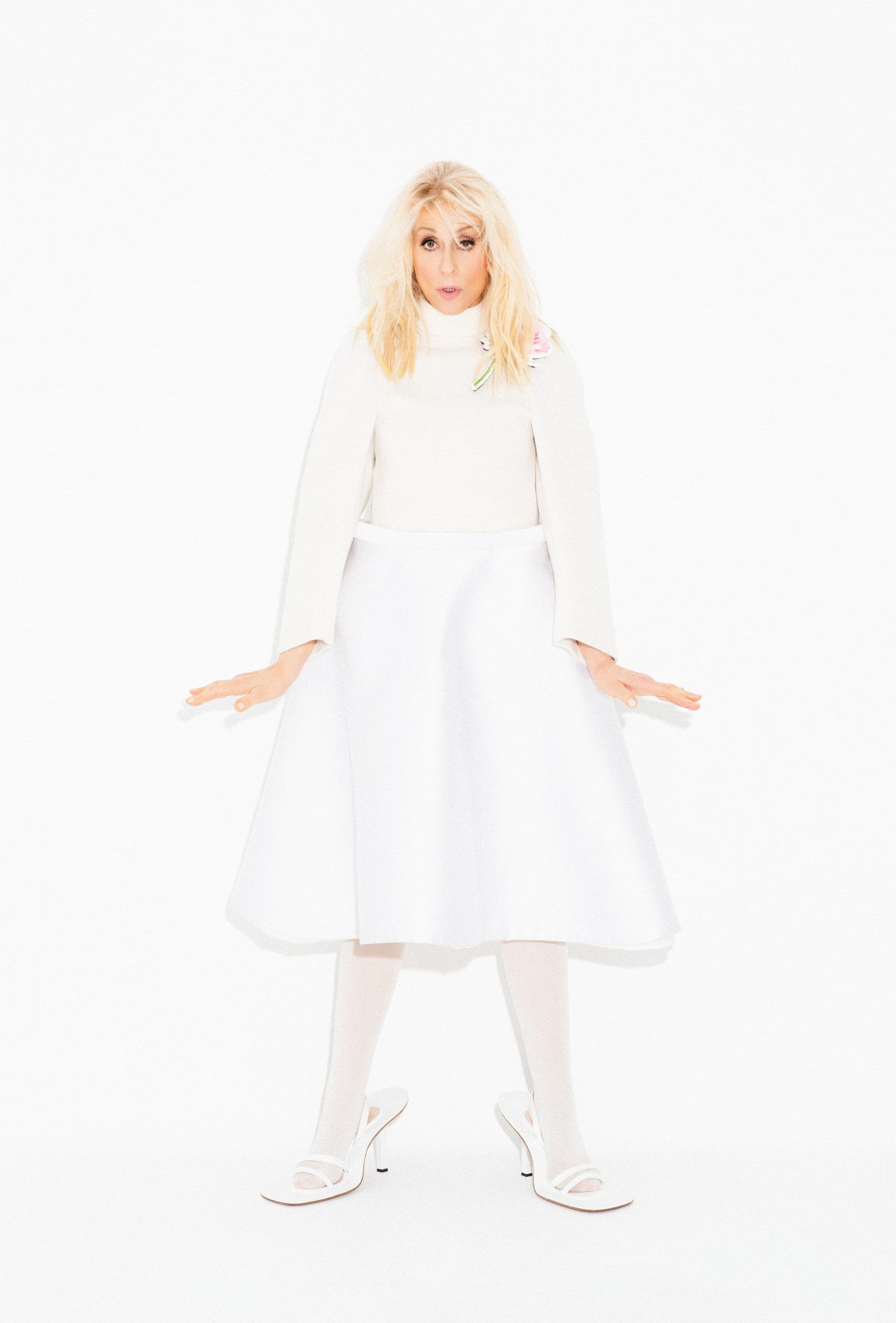
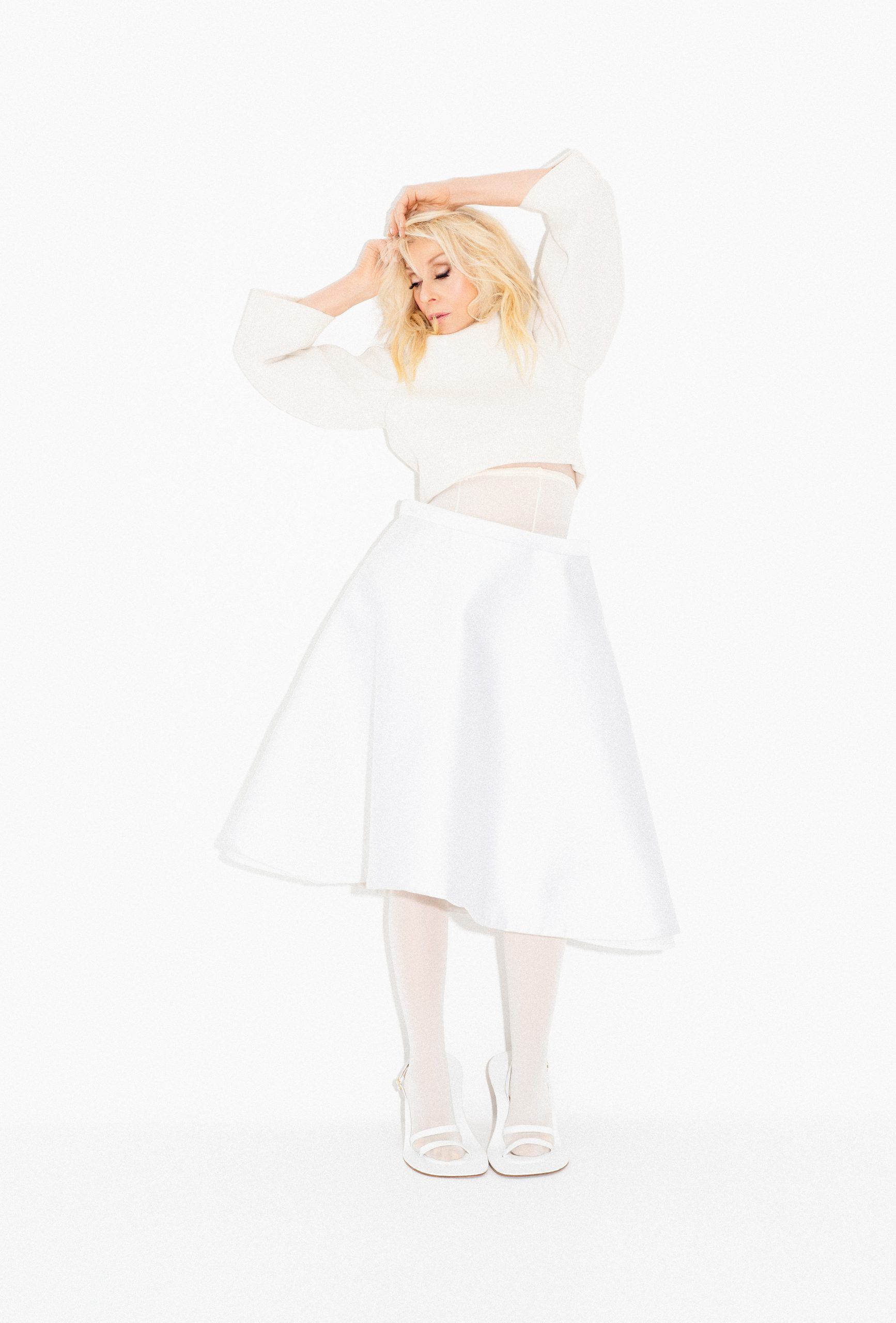
Turning to the theatre, how does that challenge you in comparison to film and television? How is that particular form of acting different for you? What do you get out of it?
It’s not so different for me, the creating of the character and the performance of the character and the ‘doingness’ of the character. I was just with friends last night and we were talking about how your whole life is devoted to when you’re going to give that performance because you may have done it 400 times, but that audience is coming in for the first time. That’s the first time they’re going to see it. You really have to be present to the evolution of the show, the characters, and the people you’re working with. It’s eight shows a week and that’s very daunting. You don’t have much of a life. I wake up in the morning and I think, “Am I in good shape? Is my voice okay?” You can’t stay out late drinking and eating. It’s fun to have friends come afterwards, but you can’t always do that.
Filming has its own challenges. I was just filming something that was really gloriously challenging and wonderful for AMC and Ridley Scott’s company. Each show that you film, whether it’s a film or a television show, has its own nuance. Sometimes you’re shooting a lot and other days you’re not shooting at all. There is a kind of presence in waiting, knowing that you’re prepared and ready to jump in. It’s almost like when you were a kid and you did jump rope and you had to jump in it. You get something different from each artistic form.
With theatre you’re always making sure that you’re in the present moment, giving all you can, even though you’ve done it 400 times. How’s my performance evolving over time? It’s the same character that you’re playing over and over again. So, how are you expanding within the space of that? With film, it’s about staying present in the moment. How are you relating? And that is in all art forms. How are you relating to the people you’re working with? When you’re working with them, they’re your family. How are you staying present and listening and being present for them and for the entire production? Are you being gracious? Are you being generous? Are you being kind? That’s your job.
Switching to Before, can you talk about when you were approached about the project and what your thoughts of Lynn were?
Billy (Crystal) called me. He said, “I want to talk about this.” He had Sarah Thorp, the writer, creator, and executive producer, over. We talked about all things otherworldly reincarnation and spiritual connection. I’ve known Billy for a long time, so there was no question for me. It wasn’t about the script. I always knew somewhere, sometime, I would work with Billy and I always wanted to. He’s just such an extraordinary human being and we had such a good time together and there’s a lot of stuff in it you’ll get to see.
I’m on episode five right now.
You’ll begin to see there are some really interesting aspects to the relationship as time goes on, you’ll see why I did it.
On Good Morning America, you said that Before is more of a psychological thriller than it is scary. I think it’s a mixture of both. It’s definitely on the scarier side of things [laughter].
I know. A lot of people have said that. But if you look at it through the psychological lens, it will start to make sense to you the more you watch it. What I find compelling about it is that, as you see the story unfold, you really understand these three people and their relationships and how they are connected with each other, not just in this time, but from before.
What is it about thrillers that are so captivating to us?
Just to speak to [the world] right now, I think people have a lot of feelings about the dynamics of what is happening in our world. Sometimes you want to see something that matches psychologically, the feelings that you’re having inside, which is fear and anxiety. With watching it on screen, you can feel all those feelings and still be safe. It makes you feel alive.
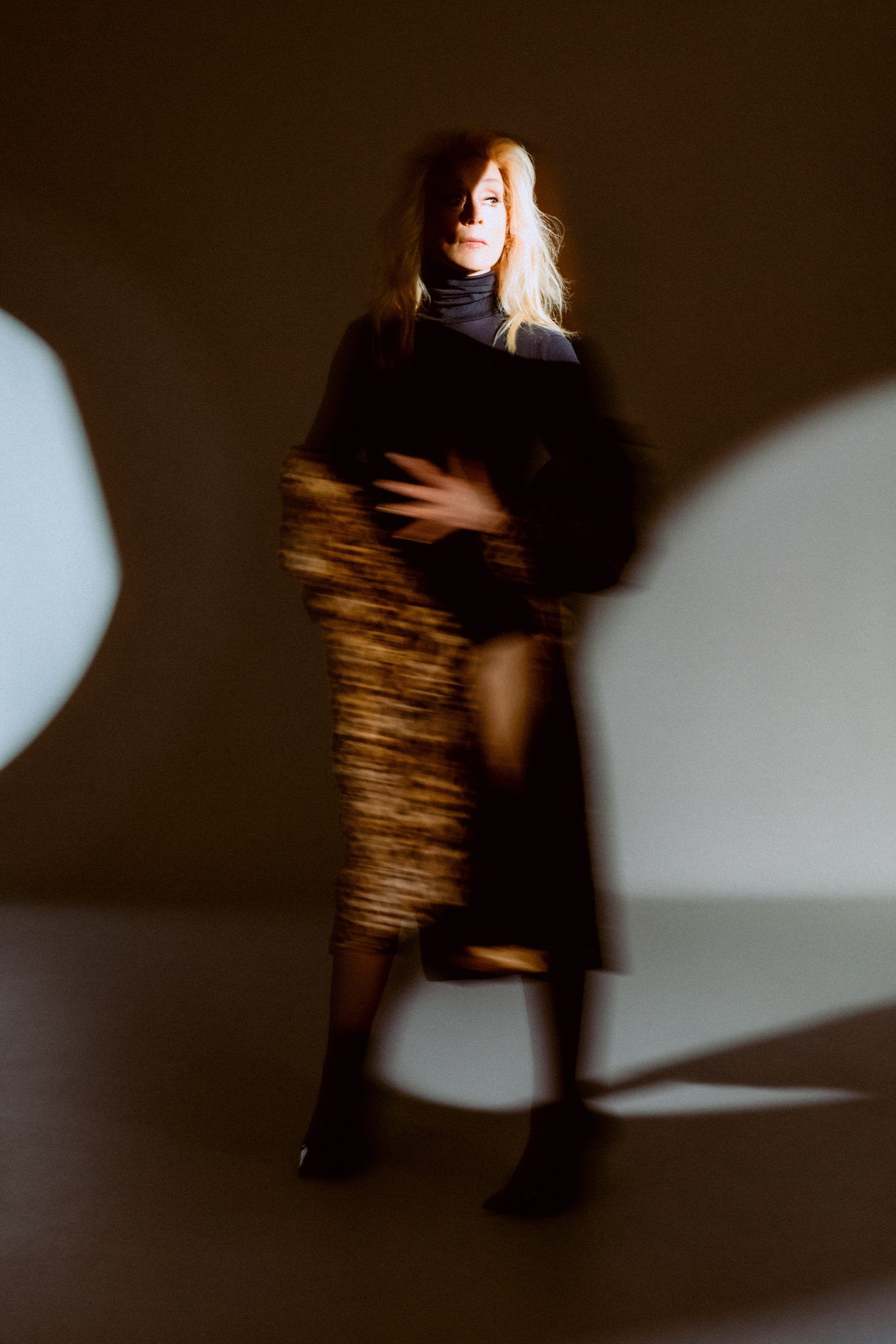
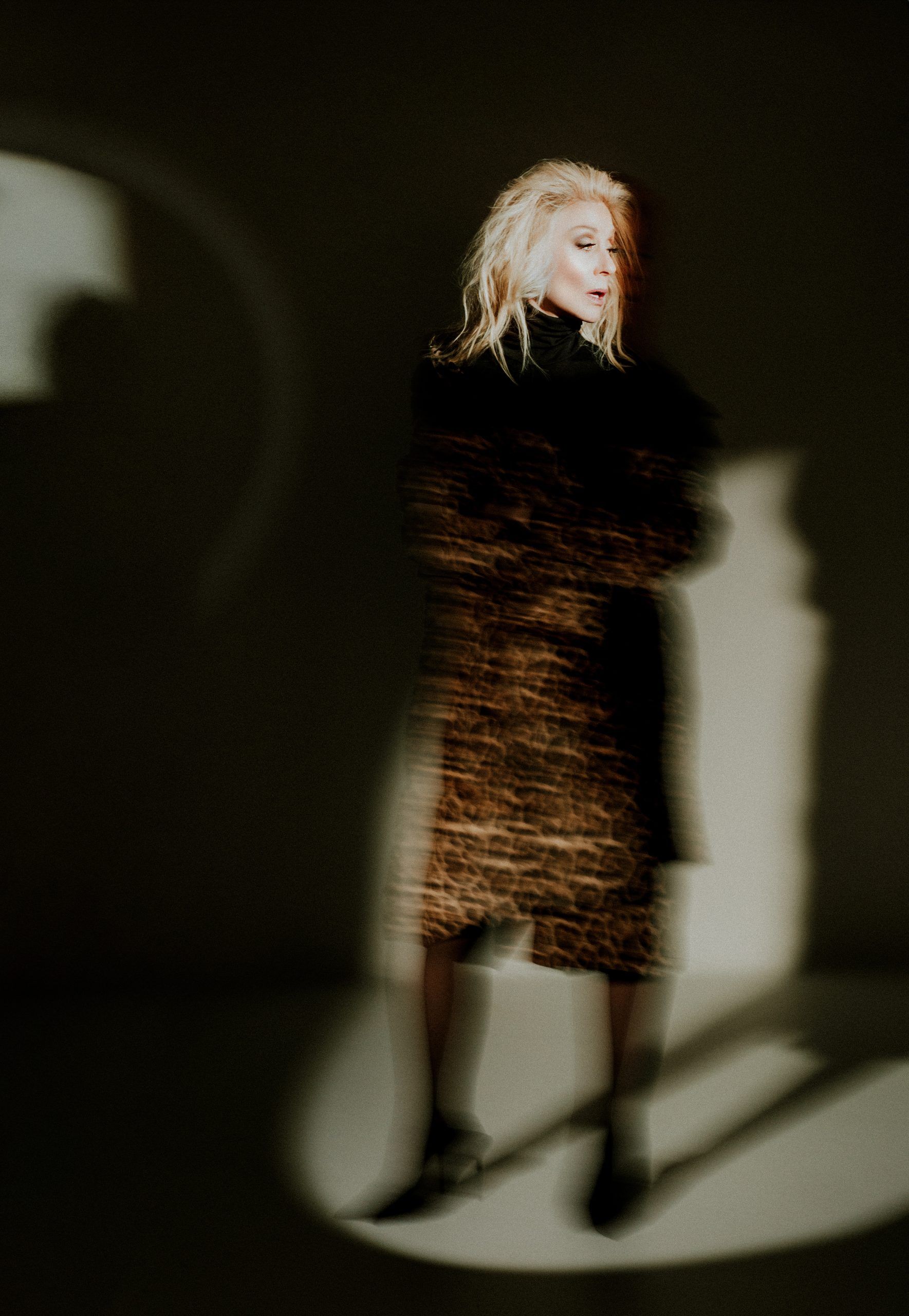
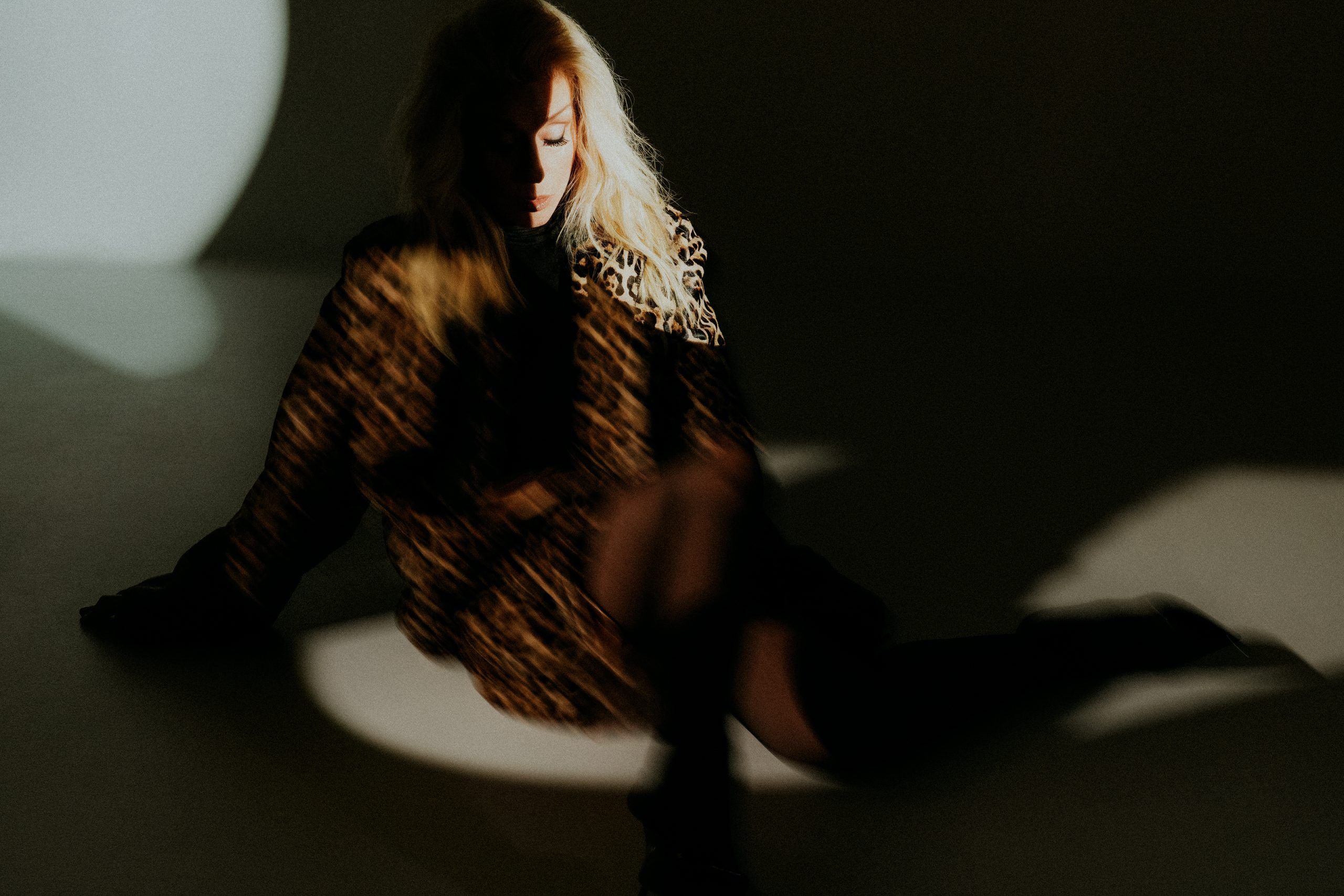
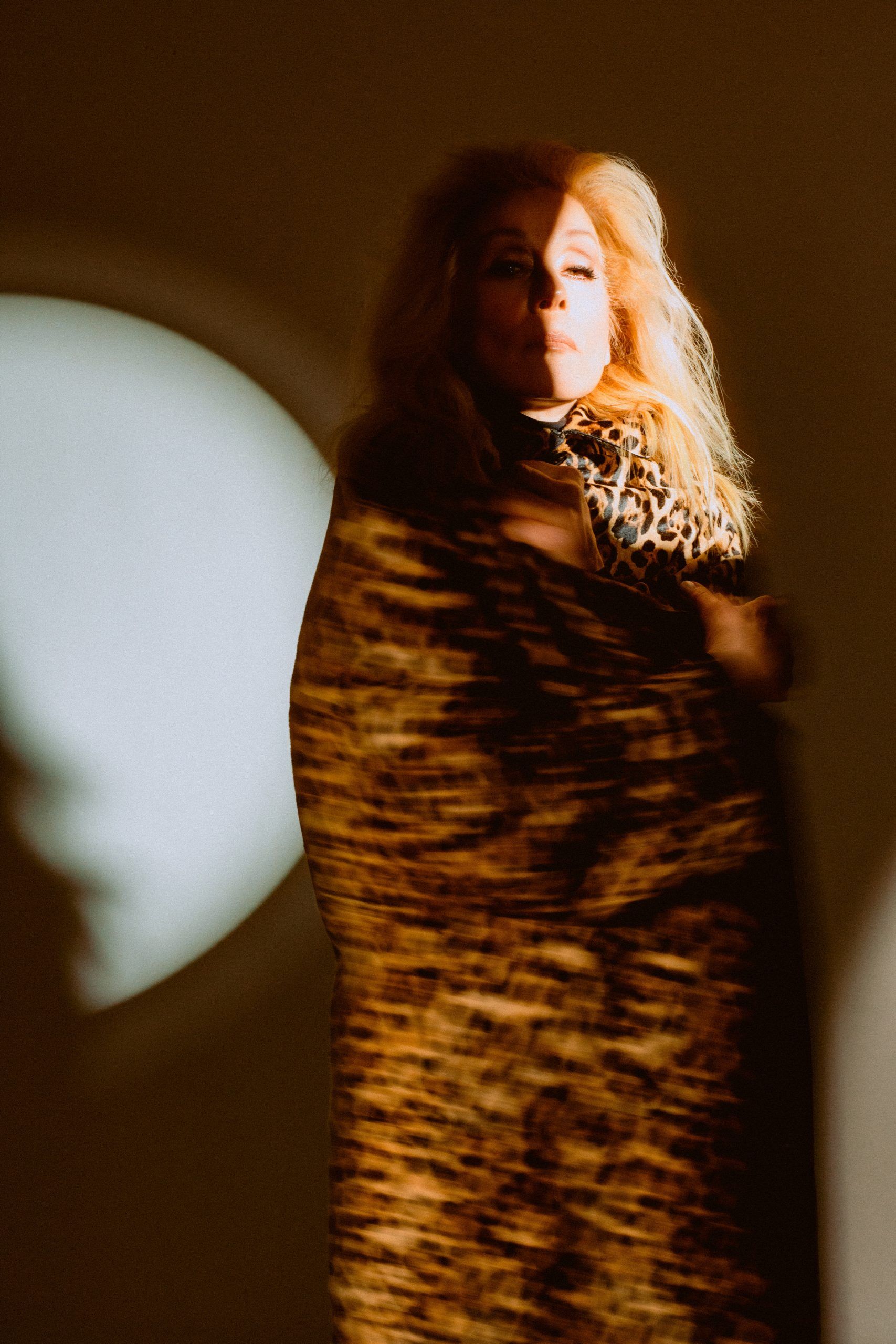
Can we talk about the decision to leave One Life to Live? What was your thought process behind that? What was it like to leave that safety net, that bubble and move on and try something new?
I didn’t want to leave [laughter]. I didn’t want to do it in the first place. And then when I did it, I loved it so much and I loved all the people there. My best friend is still my best friend who played my sister on One Life to Live. I didn’t want to go. I got to work with Michael Storm and Erica Slezak and all these fabulous people. I was like, “Oh, I don’t want to go. I love New York. I’m making money.”
Then I met my husband and he said, “You need to leave.” He said, “If you don’t leave now, you will be here forever and someday you will be pouring coffee and talking about somebody else’s story.” He was an actor and moved into another very successful career. He said, “You have to try.” He said, “I’ve been in California. I’ve been shooting out there. I really do believe that there’s work for you out there.” And so, I had an agent, who said to me, “Don’t tell me when it’s time to leave in five years,” which is when I left. He said, “Start saving your money now because someday you’re going to leave.” And I did. We had money and we were okay. We were taken care of and then there was work, but I didn’t work for a long time. I did one St. Elsewhere episode when I first came out here. There was a job that said they were going to give the role to me and then they said, “Oh, we made a mistake. We didn’t mean you. We’re going to give it to somebody else.” And then somebody brought me this thing called Who’s the Boss? It was so charming. I adored Tony Danza from Taxi. I didn’t want to do a sitcom, but this one was really special. First series I did, and it went on for eight years.
So, it definitely worked out.
It worked out very nicely. He was right. Nice to say my husband was right [laughs].
I’ve spoken to quite a few actresses at their start. Do you have any advice for them? There was one actress I spoke to about a week ago who said she almost gave up on being an actress because somebody told her she was too old to pursue it — she was 24. [Judith shakes her head] Do you have any advice you could impart?
I tend to not give advice. But I would say, first of all, I did a panel yesterday for the Power Women Summit. It was actresses who are, you know, more mature, let’s say [laughs]. It happened to be June Squibb, who stars in Thelma at age 94. I had people tell me that I would never work because my nose was too big. I had people tell me I wouldn’t work because I was too fat. Look, if you love the work, and this is the work you want to do, then do it. If you don’t really love it, and you’re not devoted and committed, then get out of it and do something else. It’s way too difficult. It’s way too challenging. It weighs on you. You have to be able to take rejection. You have to be able to understand your own character, who you are in the world, what you’re doing this for. If you don’t, or if you’re doing this for your ego, get out. Go do something else. Don’t do this because it’s too much, it’s just too hard. It’s disappointing for people. A lot of people cannot accept rejection, so go and do something else. So, I would say, if you’re doing it because you want to be of service in some way, if this is your service, then do that. But don’t make it about your ego. If it’s about ego, you’re going to be disappointed and unhappy every single time.
The other thing is to be kind and generous with people. Be the person you want to be. Be the kindness that you can be. Do your homework, do your research and do the work on your character. Study, have your voice prepared, have your body prepared, all of those things. Those are just things that you should be doing. But really, like Kathryn Hahn said yesterday, “If it doesn’t resonate with you, if you don’t get it, don’t do it, don’t take it.” I have turned down so many things because I didn’t get it. What happens is that the universe brings in other things. When you don’t know what to do, don’t do anything.
Let it come to you.
It’s really about living in the discomfort. Just sit in it, be there, and experience it. Then you’ll know how to make a choice. But you can’t make a choice from your mind telling you you have to do this, or your parents telling you you have to do that. You cannot operate like that in this business. Those are some of the things I would say. I don’t know if they are advice, I think they’re just things that I have learned through the years.
I’m going to be processing and unpacking that after this call, Judith [laughter]. My last question, you started this year winning an Emmy –
I did.
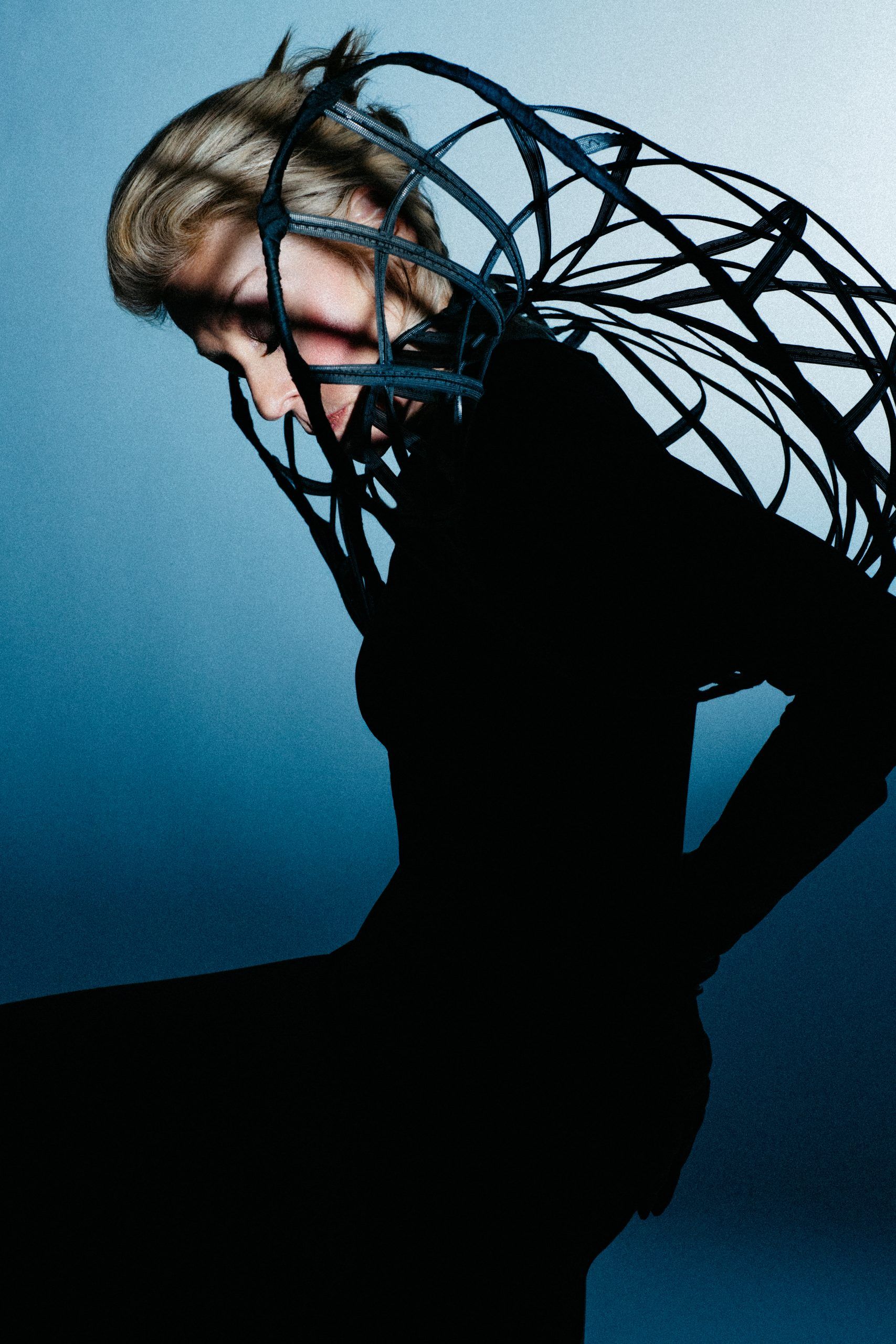
cage Heather Huey
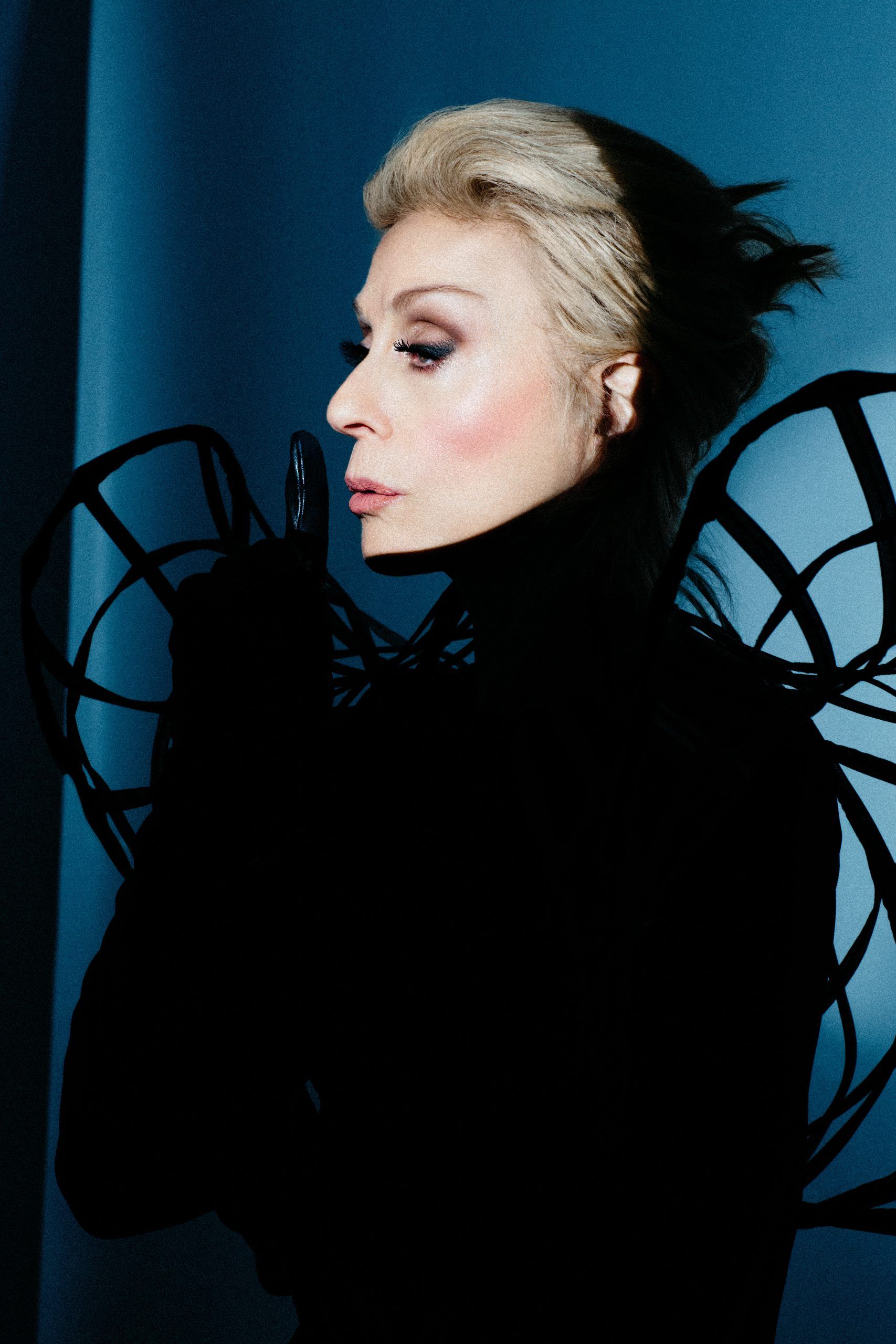
cage Heather Huey
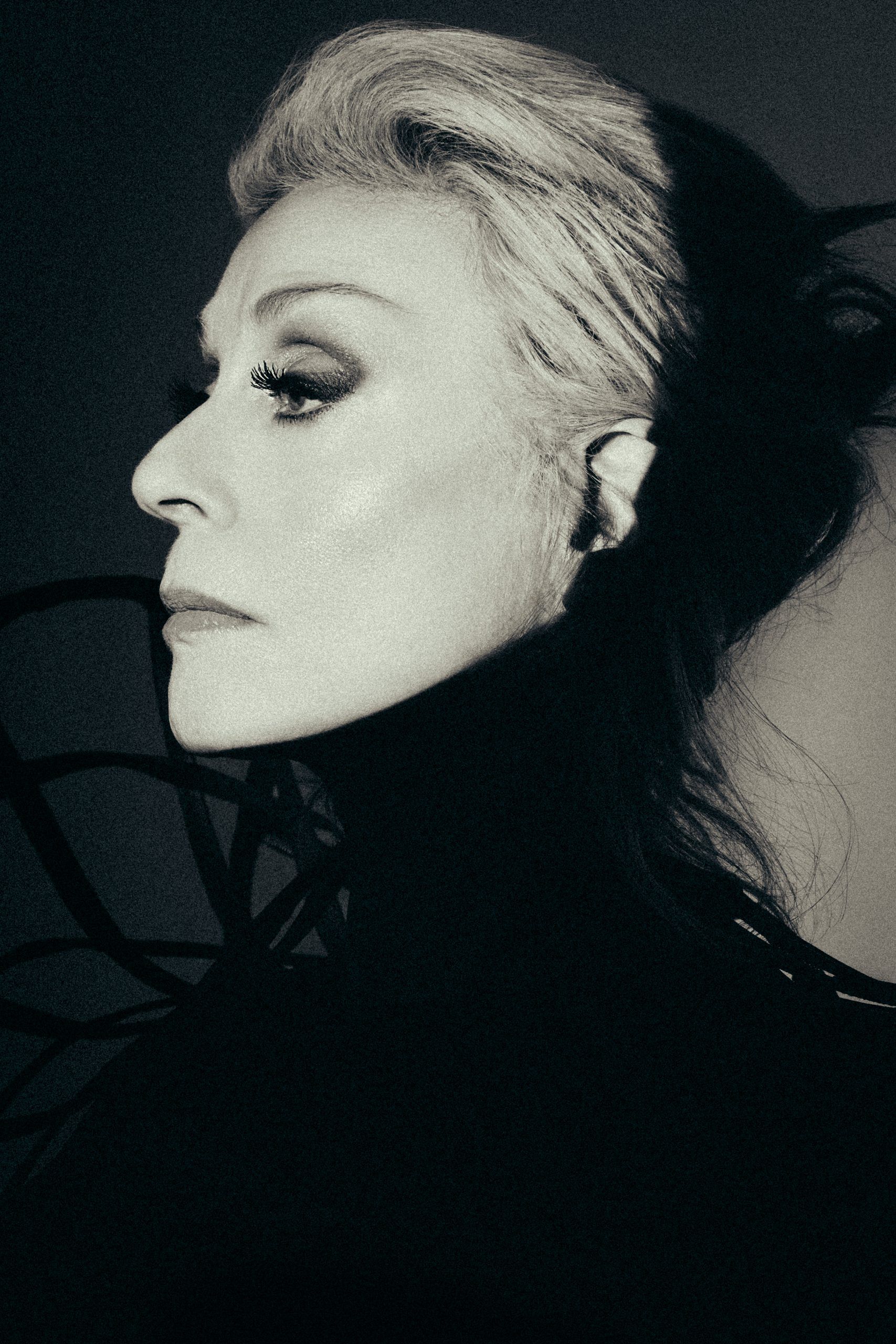
cage Heather Huey
I watched the video on YouTube, it was an incredible moment. Can you talk about what was going through your head? You looked so shocked.
I was! Because someone had said to me, before we went into the theatre, they said, “Oh, Taraji (P. Henson) is going to win this. This is Taraji’s night to take this.” Not remembering that I was also nominated. I was like, “Or Quinta Brunson.” I mean, there were so many really great women and really super performances. I mean, they were great. I don’t know how you pick somebody. I was not expecting to get it at all. I looked at my husband and I was like, “Really?” I’ve been nominated several different times for things and I was just not expecting that this would happen. I kissed Taraji and I kissed Quinta. And then I got up there.
So, that leads me to the last part of the question. What is your hope for 2025 as we end this tumultuous and lovely year?
I want us to remember and work to see who we are and who we can be. The soul of us individually and the soul of us collectively. Will we be proactive? Will we be loving? Will we be kind? Will we turn around and be responsive to the things that we know would be untoward, unkind, vicious, and inappropriate? Will we stand up? Who will we be? Once we know who we can be, the best of ourselves, the better angels of our nature, will we be that? Will we bring that to the fore?
I trust in the goodness of human beings. I still believe, in spite of everything, that people are really good at heart. I know some people don’t express that, but if there are more of us who express the higher nature, that can make a difference. I was reading something about how the planets are realigning and how we’re moving out of an age of materialism and [heading] into a phase of vibrancy and frequency. Our energies with each other will be the thing that makes the difference. I have great trust that people will come to that and be the people that they always knew that they were meant to be.
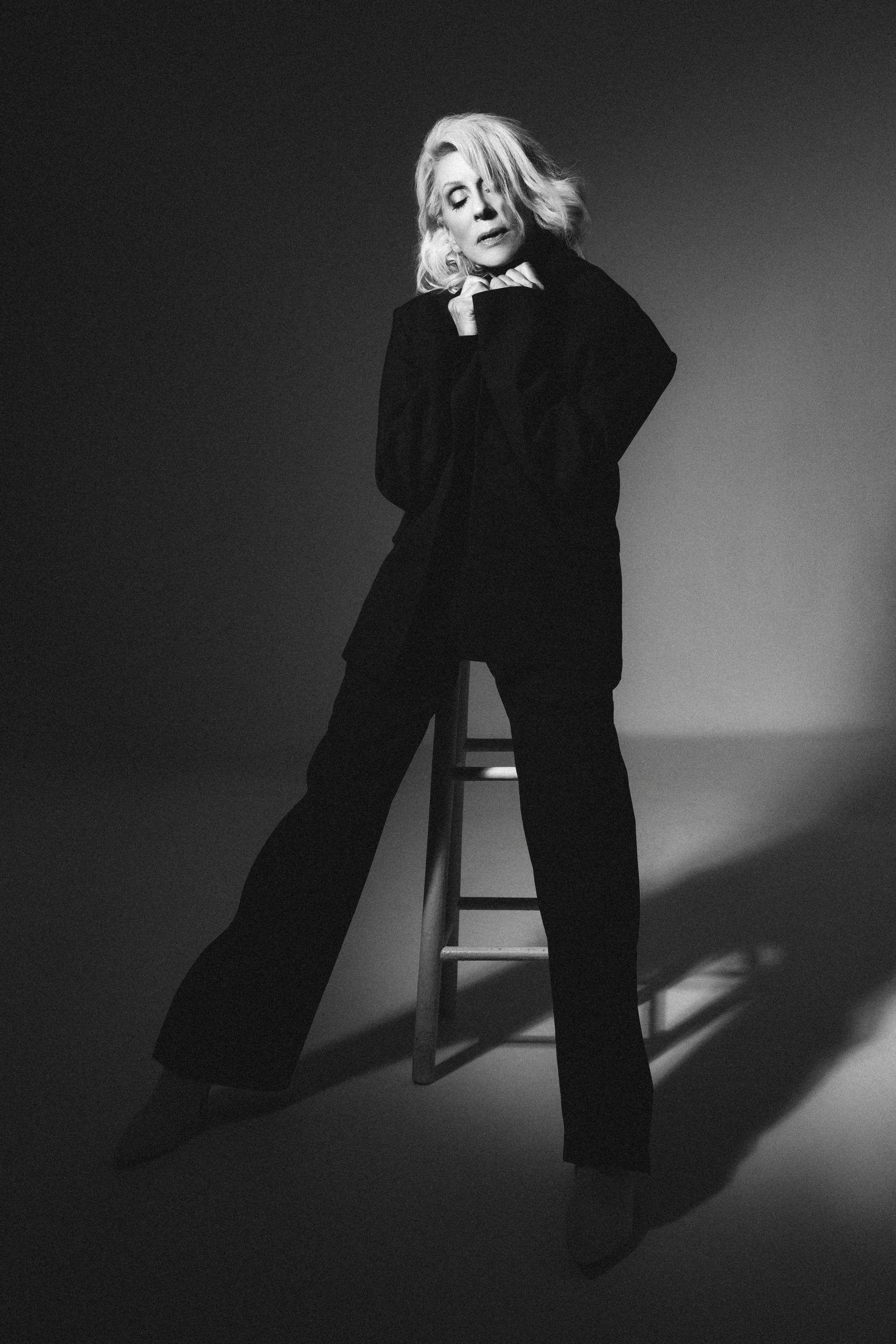
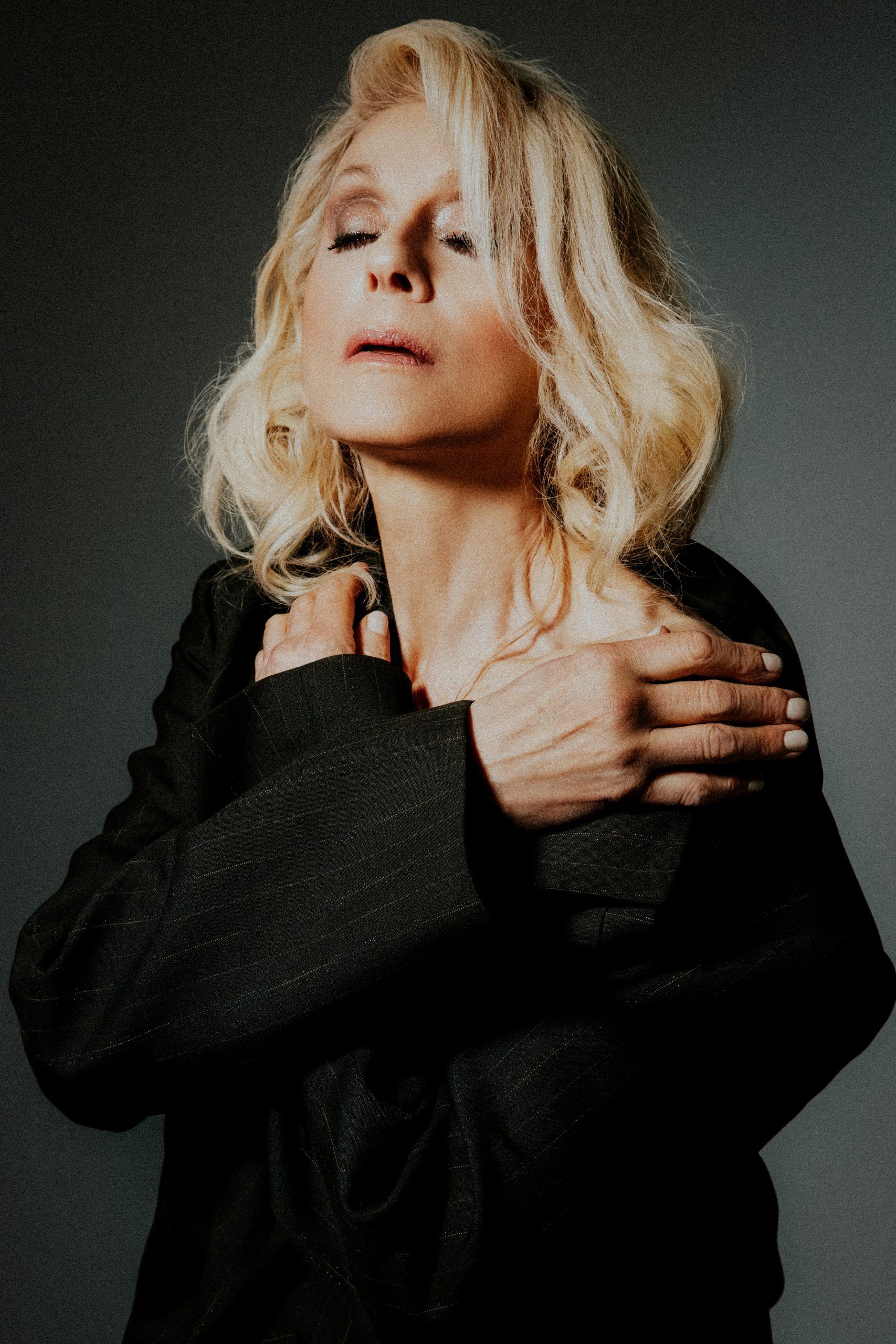
The full season of Before is available to stream now on Apple TV+.
Out of My Mind is streaming now on Disney+.
Interview Dana Reboe
Photography Alexandra Arnold
Styling Bailey Moon
Fashion Editor & Assisting Laura Spriet
Hair Ricardo Rojas using Ricardo Rojas Haircare
Makeup Julie Harris using Makeup By Mario
Photography Assistants Holland Rainwater and Daniel Roa
Header
full look Christian Siriano
cage Heather Huey

